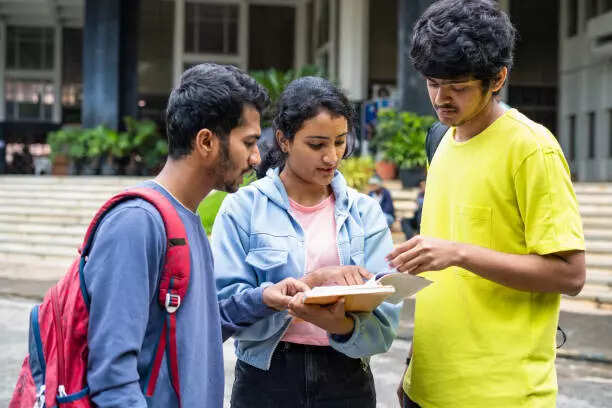The Institute of Chartered Accountants of India (ICAI) and the Office of the Comptroller and Auditor General (CAG) have collaborated to launch certificate courses for accountants working in panchayats and municipalities. These four courses provide specialised training in accounting. Participants may only enrol in one course at a time.
Interested candidates can sign up for these courses via a dedicated platform at lba.icaiarf.org.in.Registration is open throughout the year. The courses are delivered online, allowing participants to attend sessions from any location and at any time that suits them.
What are the courses being offered?
The curriculum encompasses two distinct certificate courses tailored to meet the diverse needs of governmental bodies at various levels.
First, there are Certificate Courses designed for accountants working in Panchayats, which are divided into Level 1 for Gram Panchayats and Level 2 for Zilla and Block Panchayats. There are also specialised Certificate Courses for municipal bodies, with Level 1 catering to Town Panchayats and Level 2 focusing on the complexities of Municipal Corporations and Municipalities. These meticulously structured courses aim to provide accountants with the skills and knowledge required for effective financial management in their respective administrative domains.
Timelines for each Course
The registration for courses is open throughout the year, providing flexibility for interested candidates to apply at their convenience. Batches close twice a year, on December 31st and June 30th, ensuring periodic enrollment cycles. Following the closure of batches, a screening examination is conducted within a month to assess candidates’ readiness. Subsequently, the main examination takes place approximately two months after the results of the screening examination are declared, allowing sufficient time for preparation.
What is offered after course completion?
Successful candidates are awarded their certificates online, streamlining the process and providing quick access to their credentials. Moreover, the consortium publishes a list of certificate holders on their website, enabling public verification and acknowledgment of achievements.
Study material will be offerred
The consortium offers a variety of self-study materials to aid candidates in their preparation. These resources include e-study materials accessible online, pre-recorded revisionary lectures for comprehensive review, and MCQ based tests for practice and assessment. Additionally, live virtual revisionary classes are conducted specifically for the main examination, providing interactive sessions to enhance understanding and readiness. Currently, study materials are available in 10 languages, including English, Hindi, Marathi, Telugu, Tamil, Odia, Gujarati, Kannada, Bengali, and Punjabi, with plans to include more languages in the future.
Interested candidates can sign up for these courses via a dedicated platform at lba.icaiarf.org.in.Registration is open throughout the year. The courses are delivered online, allowing participants to attend sessions from any location and at any time that suits them.
What are the courses being offered?
The curriculum encompasses two distinct certificate courses tailored to meet the diverse needs of governmental bodies at various levels.
First, there are Certificate Courses designed for accountants working in Panchayats, which are divided into Level 1 for Gram Panchayats and Level 2 for Zilla and Block Panchayats. There are also specialised Certificate Courses for municipal bodies, with Level 1 catering to Town Panchayats and Level 2 focusing on the complexities of Municipal Corporations and Municipalities. These meticulously structured courses aim to provide accountants with the skills and knowledge required for effective financial management in their respective administrative domains.
Timelines for each Course
The registration for courses is open throughout the year, providing flexibility for interested candidates to apply at their convenience. Batches close twice a year, on December 31st and June 30th, ensuring periodic enrollment cycles. Following the closure of batches, a screening examination is conducted within a month to assess candidates’ readiness. Subsequently, the main examination takes place approximately two months after the results of the screening examination are declared, allowing sufficient time for preparation.
What is offered after course completion?
Successful candidates are awarded their certificates online, streamlining the process and providing quick access to their credentials. Moreover, the consortium publishes a list of certificate holders on their website, enabling public verification and acknowledgment of achievements.
Study material will be offerred
The consortium offers a variety of self-study materials to aid candidates in their preparation. These resources include e-study materials accessible online, pre-recorded revisionary lectures for comprehensive review, and MCQ based tests for practice and assessment. Additionally, live virtual revisionary classes are conducted specifically for the main examination, providing interactive sessions to enhance understanding and readiness. Currently, study materials are available in 10 languages, including English, Hindi, Marathi, Telugu, Tamil, Odia, Gujarati, Kannada, Bengali, and Punjabi, with plans to include more languages in the future.
Denial of responsibility! Chronicles Live is an automatic aggregator of the all world’s media. In each content, the hyperlink to the primary source is specified. All trademarks belong to their rightful owners, all materials to their authors. If you are the owner of the content and do not want us to publish your materials, please contact us by email – chronicleslive.com. The content will be deleted within 24 hours.


